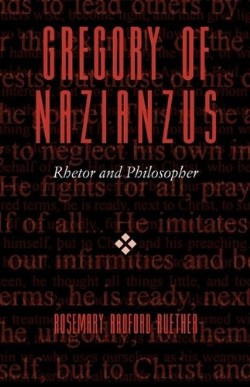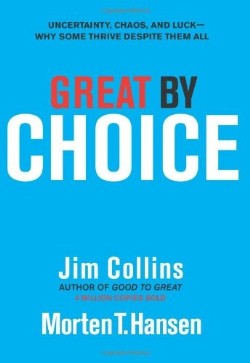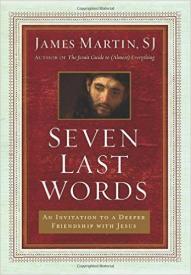Gregory Of Nazianzus
$16.00
This study on the life and thought of St. Gregory of Nazianzus was written by feminist theologian and Patristic scholar, Rosemary Radford Ruether, as her doctoral dissertation and originally published by Oxford University Press in 1969. The focus of the study is the tension and conflict in the life of Gregory of Nazianzus and his contemporary Christian companions, such as Basil the Great and Gregory Nyssa, between rhetoric and philosophy.
This is a conflict that has deep roots in Greek culture, going back to the time of Isocrates and Plato. It reflects two major streams of Greek culture, the literary tradition of classical education and public argumentation, with its often specious use of language, and the philosophical search for truth which saw itself as culminating in spiritual communion with the Good, the True and the Beautiful. In the Christian context of the fourth century A.D. this conflict had been translated into a tension between classical literary education, which still shaped the socialization of Christian leaders such as Gregory and informed the patterns of their preaching, and their search for contemplative union with God. Gregory and others spoke of the ascetic life of emerging Christian monasticism as “the philosophical life,” thus incorporating this tension between rhetoric and philosophy into their own lives.
For Gregory and other Christian leader of his time, Christians should renounce worldly ambition and even Christian positions of power, such as episcopacy, to pursue the separated life of monastic discipline, yet even in this ascetic retirement they found it difficult not to continue to employ the much-loved literary culture of their youthful education. This book shows how this tension played out in Gregory’s own life, including his relation with his friend and school companion, Basil the Great, who shared the quest for the monastic life with Gregory, but later became a bishop and sought to secure his power against church rivals by forcing episcopacy upon both Gregory Nazianzus and his own brother, Gregory Nyssa.
The volume also studies the way in which Gregory of Nazianzus employs rhetorical conventions to shape his own literary style in his sermons and treatises. It then focuses on the anthropology and cosmology that underlay Gregory’s understanding of the “philosophical life” as a journey of communion with God. In the final chapter it reviews Gregory’s own struggles to find a modus vivendi between the two cultures of clas
in stock within 3-5 days of online purchase
SKU (ISBN): 9780788099144
ISBN10: 0788099140
Rosemary Ruether
Binding: Trade Paper
Published: January 2003
Publisher: CSS Publishing
Print On Demand Product
Related products
-
Great By Choice
$29.99Add to cartThe new question
Ten years after the worldwide bestseller Good to Great, Jim Collins returns with another groundbreaking work, this time to ask: Why do some companies thrive in uncertainty, even chaos, and others do not? Based on nine years of research, buttressed by rigorous analysis and infused with engaging stories, Collins and his colleague, Morten Hansen, enumerate the principles for building a truly great enterprise in unpredictable, tumultuous, and fast-moving times.The new study
Great by Choice distinguishes itself from Collins’s prior work by its focus not just on performance, but also on the type of unstable environments faced by leaders today.With a team of more than twenty researchers, Collins and Hansen studied companies that rose to greatness-beating their industry indexes by a minimum of ten times over fifteen years-in environments characterized by big forces and rapid shifts that leaders could not predict or control. The research team then contrasted these “10X companies” to a carefully selected set of comparison companies that failed to achieve greatness in similarly extreme environments.
The new findings
The study results were full of provocative surprises. Such as:The best leaders were not more risk taking, more visionary, and more creative than the comparisons; they were more disciplined, more empirical, and more paranoid.
Innovation by itself turns out not to be the trump card in a chaotic and uncertain world; more important is the ability to scale innovation, to blend creativity with discipline.
Following the belief that leading in a “fast world” always requires “fast decisions” and “fast action” is a good way to get killed.
The great companies changed less in reaction to a radically changing world than the comparison companies.
The authors challenge conventional wisdom with thought-provoking, sticky, and supremely practical concepts. They include: 10Xers; the 20 Mile March; Fire Bullets, Then Cannonballs; Leading above the Death Line; Zoom Out, Then Zoom In; and the SMaC Recipe.Finally, in the last chapter, Collins and Hansen present their most provocative and original analysis: defining, quantifying, and studying the role of luck. The great companies and the leaders who built them were not luckier than the comparisons, but they did get a higher Return on Luck.
This book is classic Collins: contrarian, data-driven, and uplifting. He and Hansen show convincingly that, even in a chaotic and uncer
-
7 Last Words
$18.99Add to cartBased on his talks at New York’s St. Patrick’s Cathedral on Good Friday 2015, the New York Times bestselling author and editor at large of America magazine offers a portrait of Jesus, using his last words on the cross to reveal how deeply he understood our predicaments, what it means to be fully human, and why we can turn to Christ completely, in mind, heart, and soul.
Each meditation is dedicated to one of the seven sayings:
*”Father, forgive them, for they do not know what they do.”
*”Today you will be with me in Paradise.”
*”Woman, this is your son” . . . “This is your mother.”?
*”My God, my God, why have you forsaken me?”?
*”I thirst.”?
*”It is finished.”?
*”Father, into your hands I commend my spirit.”With the warmth, wisdom, and grace that infuse his works, Father James Martin explains why Jesus’s crucifixion and death on the cross is an important teaching moment in the Gospels. Jesus’s final statements, words that are deeply cherished by his followers, exemplify the depth of his suffering but also provide a key to his empathy and why we can connect with him so deeply.
-
Great Divorce
$17.99Add to cartC.S. Lewis takes us on a profound journey through both heaven and hell in this engaging allegorical tale. Using his extraordinary descriptive powers, Lewis introduces us to supernatural beings who will change the way we think about good and evil. In The Great Divorce C.S. Lewis again employs his formidable talent for fable and allegory. The writer, in a dream, finds himself in a bus which travels between Hell and Heaven. This is the starting point for an extraordinary meditation upon good and evil which takes issue with William Blake’s The Marriage of Heaven and Hell.






Reviews
There are no reviews yet.